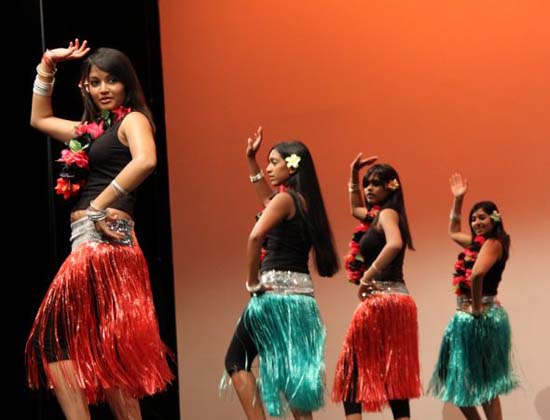
The author, a Causasian, once English, New Zealander with Māori, Pacific and Indian overlays, reflects on ethnicity issues in Fiji.
The Bainimarama government recently decreed that all Fiji citizens would be known as Fijian and ethnic Fijians as i'taukei. The move, in line with Pillar 2 of the People's Charter*, which is intended to help nation-building, was understandably objected to by many "Fijians", not because they were not i'taukei — which they demonstrably are — but because they had got used to this name, bestowed on them by Tongans, as exclusively theirs. All other citizens, excepting Rotumans, were vulagi (visitors) no matter how long their ancestors had lived in Fiji.
In another well-intended move, the Fiji government earlier decided that one's ethnicity should no longer be required on arrival and departure cards, thereby making analysis of the likely causes and effects of departures even more difficult. I hope the same will not happen to future census.
One can sympathise with both ethnic Fijians and with government. Self-indentification is important, even though purists may dispute its origin and accuracy. At the same time, the worst features of racial identification have dominated the Fiji scene for far too long, and if all the people living in the country are ever to feel they truly belong — and are not vulagi — there has to be a common name.
Recently a former colleague, Fiji-born and educated, fluent in Fijian and Hindi whose ancestors were indentured labourers from Madras, wrote a letter to the publisher of the Fiji Times about its apparent policy of referring to all Indians as Indian, irrespective of where they were born, lived and identified. It was intended for the publisher's information and not necessarily for publication. This is what he wrote:
Dear Mr Swinstead,
Re: Fiji Times racist mischief
On 30 December, 2010, The Fiji Times published two news items referring to Indian nationals (that is Indian passport holders) as ‘Indians’ and to a ‘mixed race ‘ Indo-Fijian person as an ‘Indian’ whose father is/was apparently a Fiji born Indo-Fijian (who would have held a Fiji passport).
The first article captioned, ‘They’re welcome if they’re qualified’ was about Indian students from India who had been duped to come to Fiji to enroll at the Fiji National University (FNU) by conmen. These students had paid as much as US$ 10,000 each to such agents. FNU has apparently indicated that the students will be admitted if they are qualified.
‘Call for Lal’ was the header of the second piece and reported the selection of Jacinta Lal as one of the overseas-based players selected for the final trials for the Fiji Netball team. While the overall thrust of the article is positive about breaking racial barriers, Jacinta’s ethnicity/nationality is referred to as ‘Indian’. Her father, presumably from Fiji, is referred to as ‘Indian’ and her mother’s identity is left to speculation. Her physical appearance indicates that her mother is of Caucasian or European origins – probably a Kiwi.
Her selection for the final trials implies that her father is Fiji-born and carried a Fiji passport. As such he is not an “Indian” as he was never an Indian national. He was a Fiji citizen, an Indo-Fijian, a Fiji Indian, or a Fijian Indian. Take your pick.
The present government of Fiji has proclaimed that all Fiji citizens are ‘Fijians’. The least Fiji Times can do is to recognize the fact that citizens who have Indian ancestry are Fiji born and should be recognised as such. Calling them ‘Indian’ is no longer appropriate –if ever it was.
As a person of Indian origins born in Fiji I take strong exception to your newspaper persistently referring to people of my ethnicity as ‘Indian’. I am a Fiji citizen carrying a Fiji passport which defines my nationality as a Fijian.
I hope that the Fiji Times will discontinue the racial labeling that we inherited from our colonial past characterized by ‘divide and rule’ policies which your newspaper generally supported.
A letter of support
Another Indo-Fijian commented on this letter that I have edited for reasons of space and clarity:
I share your position on the politics of naming. Those of us who live, labour, love and languish in Fiji know that naming for all its discursivity has deep material consequences. This cartography of racial anxiety that remains the dominant structure of apprehension ... is not accidental. It is ironic at a time when the dominant state apparatuses, at least putatively, have committed themselves to erasing the ignominy of race from its public memory, that the Fiji Times appears to have plunged deeper into the morass of racism.
The constant reference to “Indians” incarcerates an entire group by pretending there are no differences among Indo-Fijians.
Most importantly, it also affords the supposedly most "pure" and powerful within this group to become the self anointed authors of representation and cultural gatekeepers who decide who does or nor belong.
Those of you who have been following the burgeoning debate around the use and recognition of Fiji-Hindi as a public language will attest that it illuminates this tension about exactly who has the power to define the cultural code that would best represent Indo-Fijians.
Unsurprisingly, the cultural purists and ethno-nationalists appear to have a nostalgia for a past that historically never was theirs. The ordinary folks, on the margins of this elitist trope, have no place in this discourse except to serve as the absent-present centre of a political ontology in which “Indo-Fijians” remain a statistic so necessary to either perpetuate racism or become the ideological justification for its erasure.
Some background
I agree with these two writers but would go further, as you will see. Many people confuse race with ethnicity which are not quite the same. Race is a purely biological trait; ethnicity is race plus culture (often with language, customs, practices and self-identification thrown in.) Citizenhip is a thing apart and may have nothing to do with either.
Strictly speaking, Indian refers to citizenship only and excludes Pakistani, Bangladeshi, Nepali and others born on the Indian sub-continent who are not Indian citizens. Within India, citizenship would be taken for granted and most people would claim to be Gujerati, Punjabi, Tamil, Madrasi, Bengali and so on.
So where does this leave the Indian in Fiji? Under one percent of people of Indian ancestry living in Fiji were not born in Fiji when I researched Fiji: an Encyclopaedic Atlas**, and of the remaining 336,000 most were the descendants of indentured girmit (or agreement) migrants who arrived from North India via Calcutta from 1879 and South India from 1902 until recruitment ceased in 1916. Three-quarters of 60,000 Girmiti were from North India, 85 percent were Hindu, 14percent Muslim, and most were poor, uneducated and from the agricultural castes. They were joined from the early 1900s by smaller numbers of "free migrants" who paid their own way or had passages paid for them, mainly Gujerati jeweller of the Sunar caste and trader of the Kharti caste from villages in Gujerat close to modern-day Mumbai or from British Natal in South Africa; Bombay Parsi mechanics who worked in the CSR sugar mills; Sikh policemen via British Hong Kong, and Punjabi herdsmen and cultivators.
It has been from these disparate and often humble roots that today's Indo-Fijians (Na Kai India ni Viti) have evolved to produce their own values, language and culture all of which show ethnic Fijian influences. They also indentify — and are identified — by their ethnic, religious and regional origins making them, as the occasion demands, Fijian, Indo-Fijian and Indo-Fijian Madarasi, or Fijian, Indo-Fijian and Bengali Muslim — but never an Indian.
Afterthought. All things change, of course. Race and culture have porous boundaries. Education and urbanization have led to inter-marriage where children may wish to identify with one or both parents. Racial defensiveness has sometimes made this difficult, especially for "traditional" Indo-Fijians, but over time as education advances and race is pushed from the centre stage, all Fiji citizens will be accepted as equally "belonging;" miscegenation will be seen to produce both challenges and opportunities, and much further down the road Bernard Shaw will be proved right: "Mongrels will inherit the earth."
Footnotes
* Pillar 2: Developing a Common National Identity and Building Social Cohesion:
• Promoting the importance of a national identity to facilitate reconciliation and rebuilding by amending the Constitution to change the official name of the country to ‘Fiji’ and adopting the common name ‘Fijian’ for all citizens;
• Promoting a national moral vision and cooperation and understanding among religions and cultures through interfaith dialogue and formal education initiatives, which include multicultural education, teaching of vernacular languages, a National Youth Scheme, and conducting flag ceremonies and singing the national anthem in all schools and important state functions; and
• Removing racial categorisations involving the gradual phasing out of institutional names that denote racial affiliations and elimination of racial profiling by Government and other institutions and entities whilerecognising that the status of the Vola ni Kawa Bula (VKB), Native Lands Commission (NLC), and the Native Lands Trust Board (NLTB) records, since they apply specifically to the affairs of the iTaukei, will not be affected.
** My Encyclopaedic Atlas. The A4-sized book, all 419 pages, are still for sale from USP, or from Crosbie Walsh for NZ$25 plus postage.



